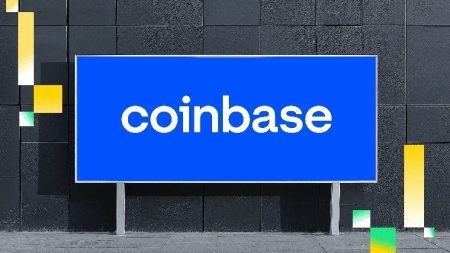LISE Secures Historic Authorization as Europe’s First Fully Tokenized Equity Exchange
French Regulatory Milestone Paves Way for Blockchain Revolution in Capital Markets
In a groundbreaking development for European financial markets, Paris-based Lightning Stock Exchange (LISE) has achieved what many industry observers have long anticipated: official authorization to operate Europe’s first fully tokenized equity exchange. The landmark approval, announced Thursday, positions France at the forefront of blockchain innovation in regulated capital markets and signals a potential transformation in how smaller companies access public financing.
The French financial regulator, Autorité de Contrôle Prudentiel et de Résolution (ACPR), granted LISE a Distributed Ledger Technology Transfer and Settlement System (DLT TSS) license under the European Union’s DLT Pilot Regime. This pioneering regulatory framework, specifically designed to accommodate blockchain-based financial infrastructure, allows LISE to merge traditionally separate market functions—operating as both a Multilateral Trading Facility (MTF) and a Central Securities Depository (CSD)—within a unified digital ecosystem.
“This license allows us to operate the first fully tokenized equity exchange in Europe, offering a direct response to real-world financing challenges,” said Mark Kepeneghian, LISE’s CEO, highlighting the practical applications of the technology beyond theoretical use cases. The achievement represents years of collaborative effort among financial authorities, with the authorization developed through consultations with the Banque de France, the European Securities and Markets Authority (ESMA), the Autorité des Marchés Financiers (AMF), and the European Central Bank—underscoring the comprehensive regulatory scrutiny behind this innovation.
Powerful Backers and a Focused Market Strategy
LISE’s market credibility is further reinforced by its impressive shareholder composition, which includes several of France’s financial heavyweights. CACEIS, a subsidiary of the Crédit Agricole Group, BNP Paribas, and Bpifrance—France’s public investment bank—all hold stakes in the venture, providing both financial backing and institutional legitimacy to this technological leap forward.
The exchange has identified a specific market gap, targeting French companies with market capitalizations below €500 million (approximately $582 million). This strategic focus addresses a persistent challenge in European capital markets: smaller enterprises often struggle to attract adequate investor attention and liquidity through traditional listing venues. LISE has committed to ensuring that at least half of its listed companies will be small and medium-sized enterprises (SMEs) with valuations under €200 million, creating a dedicated space for growth-stage businesses that might otherwise remain private longer or seek alternative funding sources.
While the authorization represents an immediate regulatory achievement, investors will need to exercise some patience before trading begins. LISE plans to host its first SME and midcap initial public offerings (IPOs) in early 2026, with a particular emphasis on strategic sectors including energy, infrastructure, and defense—areas that align with both national economic priorities and investor interest in tangible assets with growth potential.
The Transformative Potential of Tokenized Equity
The significance of LISE’s authorization extends far beyond a single market participant gaining regulatory approval. It represents a fundamental reimagining of capital market infrastructure using blockchain technology, with potential benefits cascading throughout the investment ecosystem. By tokenizing equity—essentially creating digital representations of company shares on a blockchain—LISE aims to reduce settlement times, lower transaction costs, and increase transparency in market operations.
For smaller companies, the streamlined listing process could dramatically reduce the administrative burden and costs associated with going public. Traditional IPOs often require extensive coordination between multiple intermediaries, including investment banks, registrars, clearinghouses, and depositories. LISE’s integrated model consolidates these functions, potentially making public markets accessible to companies that would find conventional listing processes prohibitively expensive or complex.
Investors stand to benefit from improved access to Europe’s smaller growth companies—a segment that has historically been challenging to invest in efficiently. The tokenized approach promises enhanced liquidity through faster settlement, fractional ownership possibilities, and programmable compliance features built directly into the tokens themselves. This technological foundation could eventually enable 24/7 trading and instantaneous settlement—features that remain aspirational in most traditional exchanges constrained by legacy systems and operational schedules.
A Test Case for European Capital Market Innovation
For European policymakers, LISE represents a crucial test case in the broader effort to modernize the continent’s capital markets. The European Union has identified capital market development as a strategic priority through initiatives like the Capital Markets Union, aiming to reduce reliance on bank financing and create more dynamic funding options for businesses. Blockchain technology has been repeatedly identified as a potential catalyst for this transformation, but regulatory caution has slowed implementation in regulated environments.
LISE’s authorization under the DLT Pilot Regime demonstrates Europe’s balanced approach: encouraging innovation while maintaining regulatory oversight. The pilot program allows for controlled experimentation with blockchain technology in securities markets, enabling regulators to observe real-world applications before considering broader regulatory adjustments. Success in this limited context could accelerate adoption across other market segments and jurisdictions.
“What we’re witnessing is the beginning of a paradigm shift in market infrastructure,” explained a financial technology analyst familiar with the project. “If LISE can demonstrate that tokenized exchanges deliver the promised benefits of efficiency and accessibility while maintaining appropriate investor protections, it could accelerate similar developments across Europe and beyond.”
Looking Ahead: Challenges and Opportunities
Despite the regulatory breakthrough, LISE and the tokenized equity concept face several challenges on the path to widespread adoption. Technical implementation will require careful coordination with market participants unfamiliar with blockchain systems. Questions about interoperability with traditional financial infrastructure remain, as does the need to build sufficient liquidity to attract both issuers and investors consistently.
Investor education represents another significant hurdle. Many institutional and retail investors lack familiarity with tokenized securities, potentially slowing initial adoption. LISE will need to demonstrate that its technological innovations deliver tangible benefits without introducing new risks or complexities into the investment process.
Nevertheless, the authorization marks a decisive step forward in the evolution of European capital markets. By combining institutional backing, regulatory approval, and innovative technology, LISE has positioned itself at the intersection of traditional finance and technological innovation. The coming years will determine whether this French initiative represents an isolated experiment or the vanguard of a broader transformation in how companies raise capital and investors access opportunities.
As Mark Kepeneghian concluded in the announcement, “We’re not just building another exchange—we’re creating infrastructure for the future of equity markets.” With its first listings scheduled for 2026, observers across the financial industry will be watching closely to see if this bold vision can translate into sustainable market reality.















